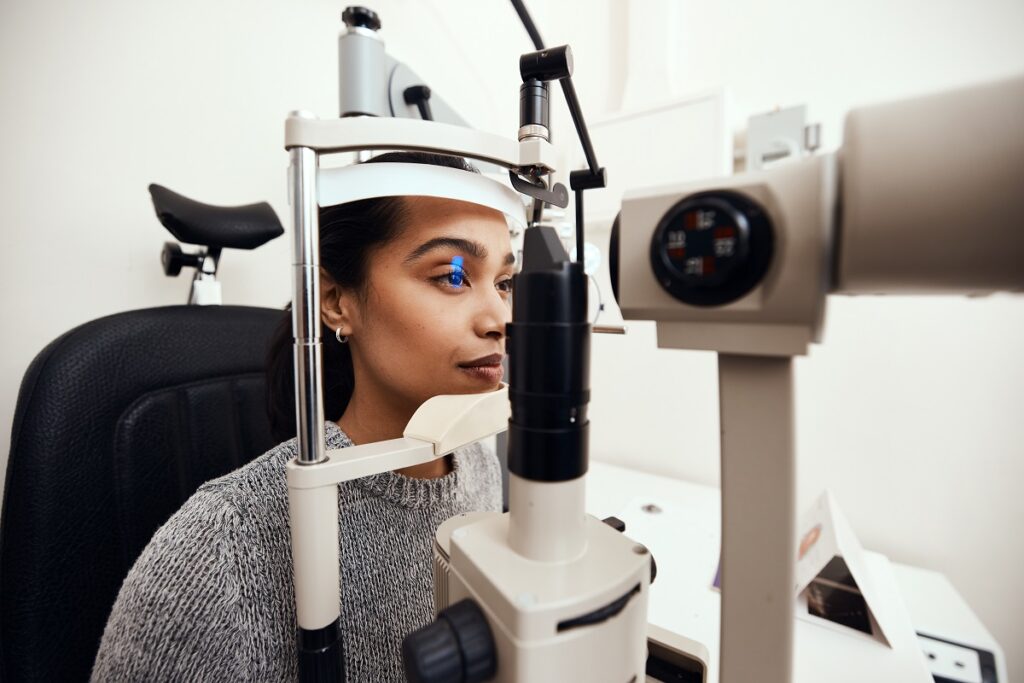The Relevance of Regular Examinations with an Eye Doctor Optometrist
Understanding the Comprehensive Function of an Eye Doctor in Modern Eye Treatment
With advancements in innovation and a raising focus on preventive care, optometrists are essential in detecting and handling chronic eye conditions, while also involving in early condition detection. Just how do these responsibilities intersect with their role in advertising overall eye wellness, and what does this mean for client end results in a joint health care environment?
Expanded Range of Practice
In current years, the function of optometrists has developed substantially, with numerous professionals now embracing an increased extent of technique that prolongs past traditional eye assessments. Their obligations now include a broad variety of services, including recommending medications for ocular conditions, managing persistent eye conditions, and executing small surgical procedures.
Even more, eye doctors are now more involved in joint care, working very closely with eye doctors, medical care doctors, and other medical care specialists to make certain alternative person care. This interprofessional collaboration is essential in taking care of complex cases that need a multidisciplinary method. Additionally, eye doctors are playing a pivotal duty in public health campaigns, such as vision testings and eye health education and learning, targeted at enhancing community health and wellness outcomes.
The increased scope of technique for optometrists not just improves their ability to offer extensive treatment but also deals with the growing need for efficient and obtainable eye treatment services, adding to total healthcare renovations.
Early Illness Detection
Very early detection of eye illness is significantly becoming a prime focus in the increased function of eye doctors. As primary eye care suppliers, eye doctors are distinctively placed to identify very early indicators of ocular conditions such as glaucoma, macular degeneration, diabetic person retinopathy, and cataracts. This crucial role is important, as very early medical diagnosis can significantly improve the administration and prognosis of these problems, potentially avoiding vision loss and enhancing person end results.
Optometrists employ comprehensive eye evaluations to spot subtle adjustments in vision and eye health and wellness. The capability to recognize very early signs of systemic health problems, such as hypertension and diabetes mellitus, via ocular indications further emphasizes the value of routine eye check-ups.
In addition, eye doctors play an essential function in patient education and learning, highlighting the importance of regular eye assessments as component of overall wellness maintenance. By cultivating a positive approach to eye treatment, optometrists add dramatically to public health and wellness, ensuring illness are caught and taken care of efficiently prior to they can progress.
Advanced Diagnostic Strategies
Advanced analysis techniques have revolutionized the practice of optometry, allowing specialists to find and keep track of ocular illness with extraordinary accuracy. Technologies such as optical coherence tomography (OCT) offer high-resolution, cross-sectional pictures of the retina, assisting in very early discovery of conditions like glaucoma and macular degeneration.
Another vital improvement is electronic retinal imaging, which catches thorough views of the retina using high-definition video cameras. This technology is essential in identifying changes in retinal structure with time, thus helping in the monitoring of problems like diabetic retinopathy. Aesthetic area testing, enhanced by computer-aided systems, allows for accurate mapping of a client's visual field, essential in diagnosing and tracking glaucoma development.
Corneal topography, one more remarkable analysis device, generates topographic maps of the cornea's surface area. This is specifically helpful in fitting contact lenses and intending refractive surgery. These advanced diagnostic techniques collectively enable optometrists to supply aggressive, targeted care, guaranteeing far better individual results and strengthening their essential duty in eye health and wellness management.
Taking Care Of Chronic Eye Problems
Handling persistent eye conditions is a cornerstone of optometric care that calls for an extensive understanding of various eye illness and their long-term implications. Optometrists play a crucial role in handling, surveillance, and diagnosing problems such as glaucoma, diabetic retinopathy, and age-related macular degeneration. These conditions, if left without treatment, can cause considerable aesthetic impairment or loss of sight, highlighting the crucial relevance of ongoing care and administration.
Eye doctors employ an array of analysis tools, consisting of optical comprehensibility tomography (OCT), aesthetic field screening, and fundus digital photography, to examine the development of these persistent conditions. By carefully monitoring modifications in eye health and wellness, eye doctors can readjust therapy strategies to mitigate illness development. This might include recommending their website medications, recommending way of life adjustments, or coordinating with eye doctors for surgical interventions when necessary.

Role in Preventive Care
Precautionary care is a fundamental element of optometry that focuses on preserving eye health and stopping the beginning of eye diseases. Optometrists play a critical role in very early detection and avoidance, using regular eye exams to identify threat elements and subtle modifications in eye wellness. Optometrist Chino. These assessments are not simply about vision improvement yet include an extensive analysis of eye features and frameworks, enabling the identification of conditions such as glaucoma, cataracts, and macular deterioration at a beginning
In enhancement to diagnostics, optometrists enlighten patients on lifestyle choices that promote eye health and wellness, such as proper nourishment, UV protection, and the importance of normal eye check-ups. They encourage on the right usage of digital gadgets to avoid electronic eye strain, an expanding issue in the electronic age. Optometrists likewise offer advice on safety eyewear for recreational and work activities, reducing the threat of injury.
Preventive eye care reaches systemic health and wellness concerns that show up in the eyes, such as diabetes and high blood pressure. By collaborating with other medical care professionals, optometrists add to all natural person care, stressing the interconnectedness of ocular and systemic health and wellness. This positive technique is essential in securing visual acuity and overall wellness.
Conclusion
Optometrists currently inhabit a critical function in modern-day eye treatment, identified by an expanded extent that consists of diagnosing and taking care of persistent eye conditions, suggesting medicines, and carrying out minor procedures (Eye Doctor). Their competence in early disease detection is enhanced by these details innovative analysis methods such as optical comprehensibility tomography and digital retinal imaging. By stressing precautionary care and client education, optometrists contribute significantly to total eye health and wellness, working together with other health care professionals to guarantee effective and comprehensive patient outcomes

In addition to diagnostics, eye doctors enlighten people on lifestyle selections that promote eye health and wellness, such as correct nourishment, UV defense, and the value of normal eye examinations.Precautionary eye care expands to systemic health issues that materialize in the eyes, such as diabetes and high blood pressure.Optometrists currently inhabit an essential duty in modern eye care, characterized by an expanded extent that includes identifying and handling chronic eye problems, recommending medications, and carrying out small surgical treatments.